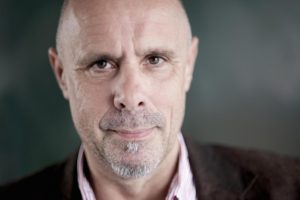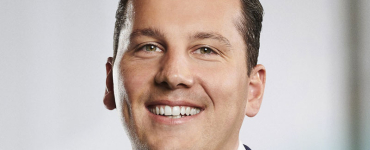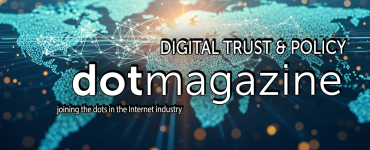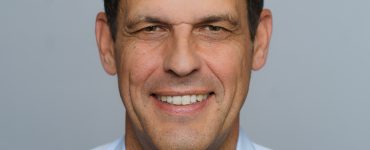Being tolerant can be quite exhausting, as I’ve been hearing more often lately, even in our cosmopolitan hometown of Cologne. It is not always easy to remain tolerant, especially in times of crisis, when resilience declines and damage is imminent or has even already occurred. Diversity can also be exhausting. Here in Germany, we all experienced what it’s like when the Minister Presidents of Germany’s 16 federal states try to agree on quick and coherent action in the middle of a pandemic taking place during an election campaign. And there were only 16 voices that wanted to be heard – and not 200 like at the summit in Glasgow, where the future of the climate was negotiated.
Diversity is also one of eco’s topics. With more than 1,100 members, we are the largest Association of the Internet Industry in Europe. Despite, and even due to, the pandemic, we keep growing, just as the Internet continues to grow – although it has long been available everywhere and always. Fortunately, I don’t experience the kind of diversity we have as a hindrance at all, thanks to our members from all walks of life. This may be partly due to the special culture that makes our careers so attractive to many of us – increasingly also to female tecchies. Above all, however, it is certainly due to the fact that, despite all our differences, we are pursuing the same goal: We want to be able to rely on the Internet.
Reliability requires tolerance of mistakes
This brings me to tolerance, which will also be an important topic for eco in 2021. When it comes to tolerance, we architects and engineers of the Internet usually take a more technical approach: A reliable Internet is a fault-tolerant Internet. From the very first connections, therefore, the basic idea was decentralised design. Data must flow, even if individual hubs or connections fail. The Internet, as it stands today, consists of around 55,000 autonomous sub-networks, and so the worldwide data traffic doesn’t come to a standstill if one or a few of them fail.
But redundancies alone are not enough. To function reliably, the Internet must be robust and resilient to many types of threats. Cyber experts saw little sign of an easing of the threat situation in 2021. Many of the problems, such as encryption Trojans, are known and there is no shortage of security solutions and initiatives. Nevertheless, 57 per cent of the experts surveyed by eco saw the German economy as insufficiently prepared in 2021, and 77 per cent expect the threat situation to grow.
Dangers to the reliability of the Internet do not only come from criminals. Authorities, too, although motivated differently, often try to tap data in very similar ways, be it with a state Trojan or data retention. Our position as the Association of the Internet Industry is clear: if they do not want to gamble away trust in digital communication, politicians must stop here.
A robust basis as an indispensable prerequisite for economic success
An IT infrastructure that is tolerant of errors and attacks because it is robust and secure is an indispensable prerequisite for sustainable success in the data-driven economy. We are working on a platform that offers companies and other data processing organisations much more than that. With Gaia-X, we are developing a federated data infrastructure with a focus on data sovereignty and data availability, based on European standards and values, with the aim of promoting innovation in Europe.
eco has been responsible for project management in the project since the beginning of 2021, which is funded by the German Federal Ministry for Economic Affairs and Energy (BMWi) with around 13.5 million Euros. Since then, things have been moving forward with great strides. In May, we were able to finalise the specification of the first four Gaia-X Federation Services and in December, we started the implementation phase. I also proud to developing the budget for 2020/2021 as interim CFO for Gaia-X, and of having been elected to the Board.
The idea of a digital infrastructure based on European values that helps our economy realise the full potential of digital innovation is often described as visionary. I, too, have called Gaia-X that, a year ago in this space, but especially during the initial euphoria that inspired not only me, but actually everyone involved. In the meantime, I see things a little more soberly. For me, Gaia-X is no longer a visionary moonshot project. For me, it is now an urgently needed investment in order to be able to keep up with global competition at all.
Larger infrastructures have greater leverage
As much as we can be happy again in 2021 about what we have managed to do together – even in times when we mainly met virtually – we should not fool ourselves. There is still some catching up to do in the digital transformation of our location. The new German federal government has not created the Ministry for Digitalisation that we and many representatives of the digital economy have been longing for. But in the coalition agreement we see a clear commitment to a new beginning.
This also involves linking the topics of digitalisation and sustainability. It is clear that large data centres consume a lot of electricity. This makes them a particular responsibility for the environment, but they also gives them a particularly high level of influence. To use this jointly, 25 companies and 17 associations from all over Europe, under the leadership of the Alliance for the Strengthening of Digital Infrastructures in Germany initiated by eco, have committed themselves to taking concrete measures to make data centres climate-neutral by 2030.
In Frankfurt, the Internet capital of Europe and home to the world’s largest Internet Exchange in terms of data throughput, DE-CIX, we are going even one step further. There, we are supporting a planned flagship project of the German Federal Ministry for the Environment, DC-HEAT, to promote waste heat utilisation in data centres through artificial intelligence. “By 2030, Frankfurt could cover a large part of its heating needs with waste heat,” according to the Borderstep Institute for Innovation and Sustainability.
Sounds like a vision I would be very tolerant of. For 2022, I wish you and your loved ones all the best – and make sure you are robust enough to remain tolerant.




